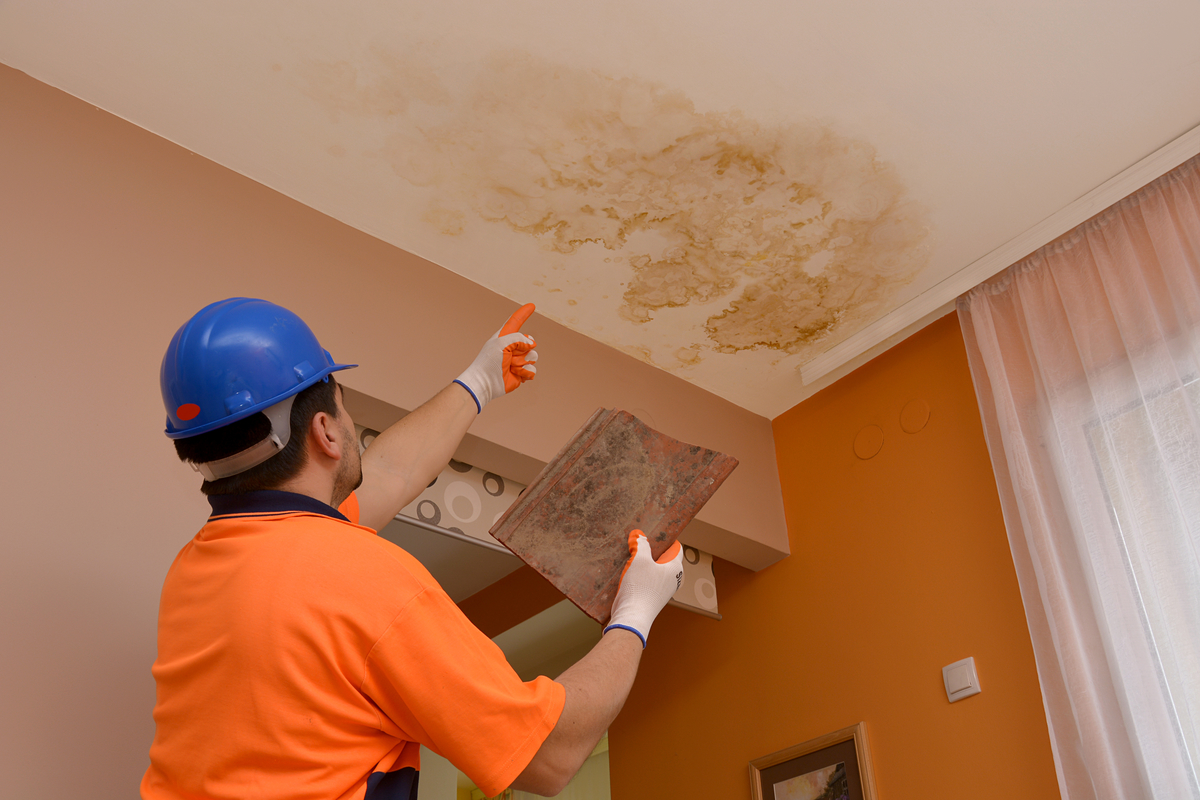Identify A Half-Dozen of The Commonest Triggers for Leakage Within Your Home
Identify A Half-Dozen of The Commonest Triggers for Leakage Within Your Home
Blog Article
We've unearthed this post on Common Water Leaks In House listed below on the web and think it made perfect sense to write about it with you over here.

Leakages not only trigger waste of water yet can also cause unnecessary damage to your house and advertise undesirable natural development. By looking and also comprehending for day-to-day circumstances that trigger leakages, you can secure your home from future leakages and unnecessary damage.
Trespassing roots
Many water leaks start outside your home as opposed to inside it. If you see a sudden decrease in water pressure, say in your tap, require time to head out as well as examine your backyard. You may discover wet patches or sinkholes in your yard, and that may imply that tree origins are attacking water lines causing water to leak out. You can have your plumber check for breach, specifically if you have trees or bushes near your property.
Rusty water supply
As time goes by, your plumbing system ages and rust such as rust may begin gnawing the pipelines. This might be the source of staining or warping on your pipes. This calls for an evaluation with your plumber instantly. Take into consideration changing the pipelines considering that they are at a higher risk of deterioration than the more recent models if our plumbing system is old.
Defective Pipeline Joints
Pipe joints can wear away over time, resulting in water leakages. If you have loud pipes that make ticking or banging sounds, particularly when the hot water is turned on, your pipe joints are possibly under a great deal of stress.
Instantaneous temperature level changes.
Severe temperature level changes in our pipelines can trigger them to expand and get unexpectedly. This growth and also tightening may cause splits in the pipes, particularly if the temperature are below freezing. If you kept an eye on how your plumbing works, it would certainly be best. The existence of the formerly stated conditions often shows a high risk.
Poor Water Connectors
At times, a leak can be caused by loose hoses and also pipes that provide your appliances. More often than not, changing is what triggers the loose water Links. You may discover in the case of a washing equipment, a pipe may spring a leakage as a result of drinking during the spin cycle. In case of a water links leak, you might see water running directly from the supply line or puddles around your home appliances.
Blocked Drains
Blocked drains pipes may be irritating as well as inconveniencing, but they can often wind up triggering an overflow causing rupture pipelines. Maintain removing any kind of materials that might drop your drains that can block them to avoid such inconveniences.
All the above are root causes of leakages yet not all water leaks arise from plumbing leakages; some leaks might come from roofing system leaks. All leakages ought to be fixed promptly to avoid water damage.
Leaks not only create waste of water yet can also trigger unneeded damages to your residence and also advertise unwanted organic development. By looking and recognizing for daily scenarios that cause leaks, you can shield your home from future leaks and also unnecessary damage. Today, we will look at 6 leak causes that might be creating your pipes to leak.
At times, a leak can be caused by loose pipes and also pipes that supply your devices. In situation of a water connections leak, you might see water running straight from the supply line or pools around your appliances.
How To Check For Water Leak In Your Home
How To Check for Leaks
The average household's leaks can account for nearly 10,000 gallons of water wasted every year and ten percent of homes have leaks that waste 90 gallons or more per day. Common types of leaks found in the home are worn toilet flappers, dripping faucets, and other leaking valves. These types of leaks are often easy to fix, requiring only a few tools and hardware that can pay for themselves in water savings. Fixing easily corrected household water leaks can save homeowners about 10 percent on their water bills.
To check for leaks in your home, you first need to determine whether you're wasting water and then identify the source of the leak. Here are some tips for finding leaks:
Take a look at your water usage during a colder month, such as January or February. If a family of four exceeds 12,000 gallons per month, there are serious leaks.
Check your water meter before and after a two-hour period when no water is being used. If the meter changes at all, you probably have a leak.
Identify toilet leaks by placing a drop of food coloring in the toilet tank. If any color shows up in the bowl after 10 minutes, you have a leak. (Be sure to flush immediately after the experiment to avoid staining the tank.)
Examine faucet gaskets and pipe fittings for any water on the outside of the pipe to check for surface leaks.
Undetected water leaks can happen without the home or business owner even realizing. If you suspect a water leak, but not able to find the source. It is time to contact a professional water leak detection service, The Leak Doctor.
How To Find a Water Leak In Your Home
https://www.leakdoctor.com/blog/How-To-Check-For-Water-Leak-In-Your-Home_AE197.html

I came across that piece of writing on How to Find Water Leaks while doing a search on the internet. Sharing is nice. Helping others is fun. Kudos for your time. Visit us again soon.
Affordable? Call now! Report this page